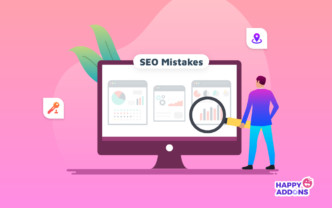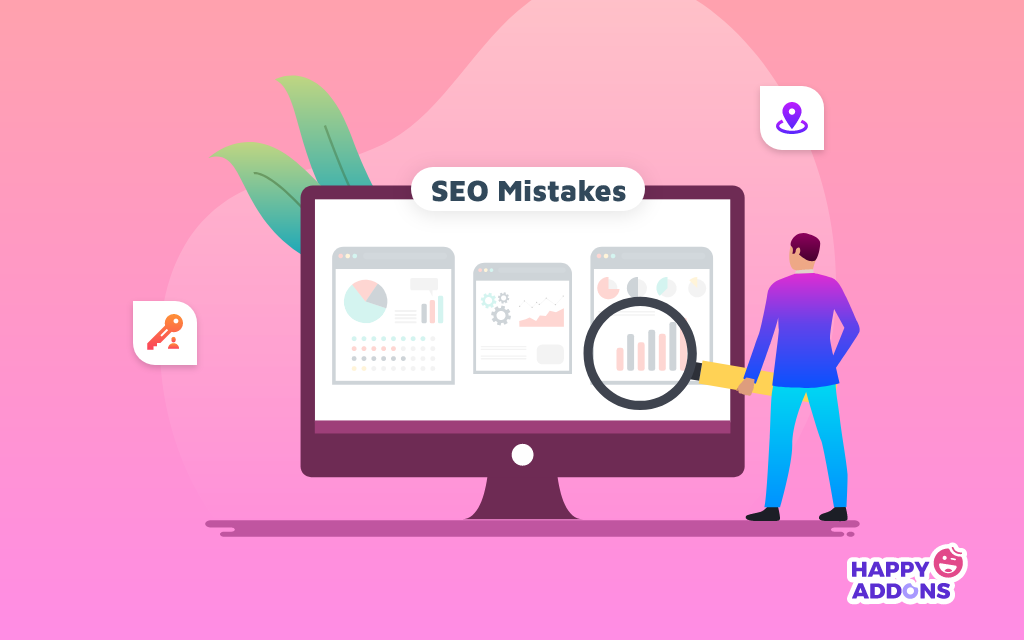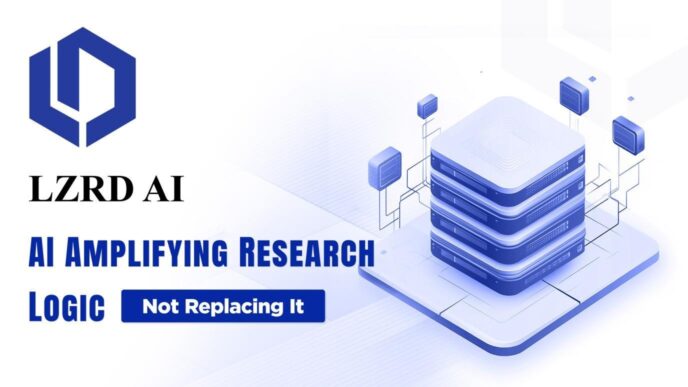TLDR with topic keyword
The biggest SEO mistakes in 2025 aren’t always obvious. Many websites, even the well-established ones, are making silent errors that hurt visibility, traffic, and user trust. From relying too much on outdated strategies to ignoring key experience signals, this article breaks down what to avoid—and how to fix it.
What we will cover
- Errors that look harmless but damage rankings
- Bad habits still carried over from past SEO trends
- New SEO shifts that are silently punishing websites
- Fixes that actually work in 2025
- Misunderstood technical SEO practices
- One-time fixes that stop working after updates
- How Brand Ignite avoids these traps (without keyword stuffing)
Are you still trusting outdated SEO tactics that don’t work anymore?
Many website owners still trust keyword densities, bulk backlinks, and plugins that promise instant rankings. Search engines have changed how they rank content. The SEO tricks that once worked are now hurting more than helping.
For example, content stuffed with keywords feels unnatural to readers and easy for algorithms to detect. Google has fine-tuned its content quality systems to reward relevance, structure, and intent. So, content that ranks today doesn’t just “contain” the keyword—it makes the topic useful to the reader from the start.
Why does publishing content without experience-based value cause rankings to drop?
Content written just for search engines lacks depth. In 2025, the Experience part of Google’s EEAT carries more weight. This means if your content sounds like it was created by a template or AI tool, it gets pushed down.
Instead, content that shows someone knows the topic—based on real use, trial, or experience—performs better. If you’re writing about technical SEO, for instance, share what happened when you implemented schema changes or fixed your indexing issues.
Real-world examples, experiment results, screenshots, and processes matter more than ever. Readers want confidence, and Google wants that confidence to be based on substance—not fluff.
Is over-optimizing your title and meta killing your traffic silently?
Clickbait-style titles filled with click triggers and keyword stuffing used to work. Not anymore. In 2025, Google systems pick up when a title misleads users. If your headline says “Shocking SEO Tricks You Need” but your page offers basic beginner info, your bounce rate increases—and rankings fall.
The smarter move is to write meta titles that match user expectations. Use long tail keywords naturally, then back that promise up on your page. This keeps both Google and readers satisfied.
Why is focusing only on keywords hurting topic authority?
Websites are still chasing individual keywords and building pages for every slight variation. This creates content overlap, weakens topical depth, and confuses search engines.
Instead, creating pages that thoroughly address a topic with relevant, semantically linked terms works better. Google evaluates how well your entire domain covers a theme, not just whether a page repeats a phrase.
For example, a good page on technical SEO will also talk about crawling, indexing, mobile-friendliness, site speed, and core web vitals—using LSI keywords and short tail keywords in natural ways.
What happens when you ignore structured data and schema?
Google continues to use structured data to better interpret your content. Yet, many sites skip implementing schema or do it improperly.
Missing schema won’t break your site, but it limits your visibility in search. Pages with schema have better chances to appear as rich snippets, FAQ blocks, and featured answers.
A common mistake is using plugins that apply generic schema across all pages. This leads to mismatches and even schema errors in Search Console. The fix is to apply relevant structured data for the content type—FAQPage, Product, Article, Review, or Event—and test it carefully using Google’s tools.
Are you depending too much on AI-generated content without editing?
This one’s controversial. AI tools can help with brainstorming or outlines, but full auto-generated articles are obvious to readers and search engines. These posts often lack personality, context, and depth.
Sites that use them at scale risk losing authority and trust. What works better is using AI to assist, then adding personal insights, fact checks, and refinements to make it your own.
Real SEO wins come when content feels natural, sounds human, and answers real questions without sounding like a script.
How does poor internal linking structure damage crawl efficiency?
Many websites ignore internal links or use random anchor text like “click here.” In 2025, internal linking is one of the most underrated ranking factors.
Pages that don’t link well to others end up isolated. Search bots struggle to crawl and connect your topics, which limits indexing and topical authority.
Fix this by linking related posts using descriptive anchor text that matches the topic. Also, use breadcrumbs, menus, and contextual links to connect new posts to your established content hubs.
Why is slow mobile performance still killing rankings in 2025?
Site speed matters. But speed on mobile is even more important. Even small delays lead to massive drop-offs in user engagement, which Google reads as poor page experience.
If your site takes more than 2 seconds to load on a mobile device, you’re likely losing traffic—even if your content is strong.
Run tests with PageSpeed Insights and focus on reducing unused CSS, JavaScript, and render-blocking elements. Also, avoid heavy third-party scripts that can slow down your mobile layout.
What are the most ignored SEO mistakes in 2025?
- Updating content too late
- Forgetting to refresh internal links when content changes
- Overlooking broken outbound links
- Misusing canonical tags
- Ignoring crawl budget on large sites
- Using popups that block content on mobile
- Creating too many low-quality category pages
Each of these feels small but adds friction for both users and bots.
Are backlinks still valuable or are they outdated now?
Backlinks still matter, but not the way they used to. Buying links, exchanging in networks, or using shady directories no longer delivers results.
In fact, they may attract penalties or just be ignored by search engines. Instead of quantity, search engines want to see backlinks that match the content and come from trusted domains.
One link from a respected industry blog or media site is more helpful than hundreds from spammy directories.
How can ignoring local SEO features ruin your traffic?
If your business has a physical presence or local reach, skipping Google Business Profile or failing to maintain local citations is a major loss.
Local SEO now plays a bigger role in blended search results. People searching “near me” expect accurate maps, hours, and reviews. Having inconsistent info across platforms or no presence at all creates distrust.
Use tools to manage your listings, update your business info across all platforms, and encourage reviews the right way.
Why is relying only on plugins for SEO a bad move?
SEO plugins can help, but many users overdepend on them. They follow plugin suggestions blindly, leading to over-optimization or duplicated metadata.
These tools don’t understand the actual intent behind a query or user experience. They’re good for checks—not strategy.
Take control of your content by understanding what people want when they search. Plugins are just tools, not a replacement for strategic thinking.
Is using click-through baiting harming your CTR and rankings?
Pages that use outrageous headlines to lure users but fail to deliver on that promise get penalized by user signals. High bounce rates and short session durations send signals to Google that the page wasn’t helpful.
A better approach is writing titles that promise a result or insight—then actually delivering that inside the first scroll of the page.
Example: Instead of “Unbelievable SEO Secrets Google Doesn’t Want You to Know,” try “Why Most Websites Still Lose Traffic After SEO Fixes.”
How does ignoring image SEO reduce your visibility?
Images often get uploaded with generic names like IMG_34823.jpg and without alt text. That’s a missed opportunity.
Search engines rely on filenames and alt attributes to understand what the image is about. Image SEO also contributes to accessibility and drives traffic through image search.
Optimize image names, use descriptive alt text, and compress images to maintain speed.
Are you still skipping content audits?
Content audits should happen quarterly. Yet most site owners never revisit old content. Pages that are outdated, no longer indexed, or redundant pile up and confuse your website structure.
An audit reveals:
- Which pages are losing traffic
- Which keywords are no longer ranking
- Which content is duplicated or cannibalized
Use tools like Google Search Console and Analytics to track these patterns and take action—merge, delete, or update.
Does ignoring SERP behavior keep your content from reaching page one?
Google changes how results look depending on the query. Sometimes it shows maps, videos, FAQs, snippets, or shopping results.
If your page isn’t structured to match what’s appearing in the SERP, it won’t rank well—even if the content is good.
Check the SERP manually before you create a page. If video content is dominating, consider making a video. If FAQs are showing up, add an FAQ block using schema.
Why are SEOs still using outdated tools and metrics?
Some tools still focus too much on keyword difficulty or domain authority. While helpful, these metrics are not what Google uses to rank sites.
A better way to judge content potential is by examining:
- Search intent
- Query format
- Real SERP structure
- Competitor content length and value
Metrics should support strategy, not lead it.
Is AI content detection reducing trust in your brand?
With the rise of AI writing tools, readers have become more skeptical. Pages that read like machine-written posts reduce trust. This leads to lower shares, fewer backlinks, and ultimately, weaker performance.
Brand Ignite prioritizes clarity, tone, and depth—avoiding robotic phrasing while keeping the content easy to read. This approach creates natural, relatable content that people and algorithms appreciate.
What’s the fix for these 2025 SEO mistakes?
- Write with clarity, experience, and real intent
- Update old content often and remove what’s irrelevant
- Use schema properly and test for errors
- Focus on mobile experience and speed
- Build natural internal links to related topics
- Research SERP behavior before creating a page
- Don’t trust plugins to do your thinking
- Stop producing content just to chase keywords
FAQs
Is keyword density still important in 2025?
No. Google now focuses on relevance and user satisfaction. Keyword density matters far less than covering the topic thoroughly in a natural way.
How often should I update my content?
At least once every quarter for your top pages. Update data, add new sections, and refresh internal links.
Can I still rank with AI-written content?
Only if heavily edited and personalized. AI drafts should serve as a start, not the final version.












